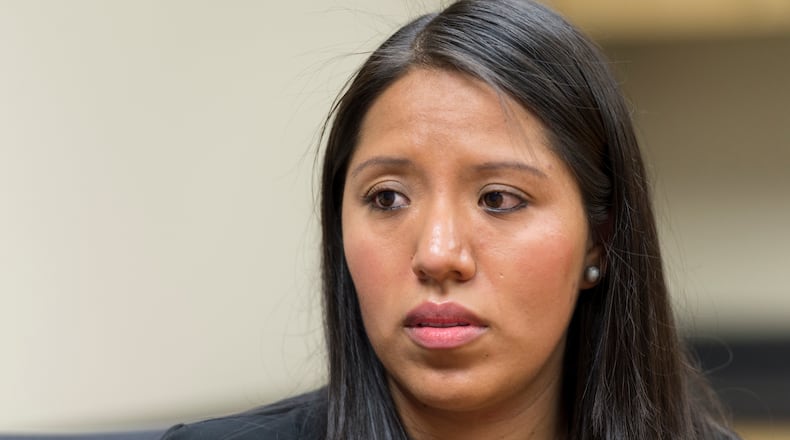A federal judge will hear arguments tomorrow in the case of a Norcross woman and Mexican national whose 2010 arrest while a Kennesaw State University student sparked a national debate over illegal immigration.
Now immigration law enforcement actions under the Trump administration have brought Jessica Colotl into the spotlight again, as she fights a request from U.S. Immigration and Customs Enforcement that she be deported.
The latest development in Colotl's case raises questions about how the Trump administration will handle the nation's 770,000 people with Deferred Action for Childhood Arrivals status.
Colotl, a Lakeside High School graduate, was arrested on the Kennesaw State campus in 2010 and charged with impeding traffic and driving without a license.
Her arrest became a political issue and critics of illegal immigration grew angry when they learned Kennesaw State was charging her an in-state tuition rate.
State officials later adopted a policy requiring all universities to verify the "lawful presence" of students seeking in-state tuition.
Colotl was held in an immigration detention center in Alabama for more than a month before she was given a reprieve and allowed to finish her degree in 2011 at Kennesaw State, which started charging her out-of-state tuition.
ICE revisited Colotl's case in 2016, when she sought to close her deportation proceedings so she could return to Mexico and visit her mother, who had undergone surgery. An immigration judge in Atlanta denied her request. She appealed. And the federal Board of Immigration Appeals sent her case back to Atlanta for it to be closed.
But ICE asked an immigration judge to order her deported, saying Colotl is "an enforcement priority" under a memo the government issued in February for carrying out Trump's stringent executive orders on immigration. That memo says the government "no longer will exempt classes or categories of removable aliens from potential enforcement."
At issue, according to ICE, is a document Colotl signed in 2011, admitting she gave Cobb County law enforcement officers a false home address.
"Ms. Colotl was subsequently allowed to enter a diversionary program by local authorities, " ICE spokesperson Bryan Cox said earlier this month. "However, under federal law her guilty plea is considered a felony conviction for immigration purposes."
Colotl said she provided her previous home address at the time, adding her family had moved to another location while she was being detained.
VIDEO -- Jessica Colotl in 2013:
About the Author
Keep Reading
The Latest
Featured



